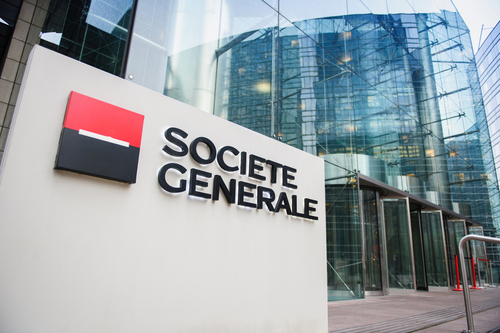Des commissions d’interchange trop élevées
La Société Générale et la Caisse d’Epargne de Loire-Centre ont été condamnées par la DGCCRF à verser respectivement une amende de 1,6 million d’euros et de 175 000 euros.
Les commissions d’interchange, à savoir les commissions versées par les banques des commerçants à celles des consommateurs à l’occasion des paiements par carte bancaire, étaient excessives, et dépassaient le plafond instauré par la réglementation européenne de 2015.
Au mois de décembre 2020, 6 banques françaises avaient été sanctionnées par la DGCCRF pour la même raison. Le montant total de l’amende dépassait les 2,8 millions d’euros, répartis entre :
- la Caisse fédérale du Crédit Mutuel Maine Anjou Basse-Normandie,
- la Banque Populaire du Grand Ouest,
- la Caisse régionale Crédit Agricole Normandie,
- La Banque Postale,
- Afone,
- BNP Paribas.
Non-respect de la réglementation européenne
Dans le cas de la Société Générale et de la Caisse d’Epargne de Loire-Centre, la moyenne des commissions d’interchange observée par la DGCCRF s’élevait à 0,3 %, au lieu de 0,2 % maximum pour les cartes de débit, comme l’impose la réglementation européenne.
La DGCCRF a également constaté un manque de transparence concernant les tarifs, et un défaut d’information quant à la nature des cartes bancaires. En effet, si le plafond des commissions d’interchange est fixé à 0,2 % pour les cartes de débit, il est de 0,3 % pour les cartes de crédit, mais les informations fournies aux clients ne permettent pas toujours de savoir quel type de carte bancaire ils possèdent.
La Société Générale a confirmé qu’elle règlerait l’amende et abaisserait les frais pour se conformer à la réglementation. Elle a cependant nié toute fraude et évoqué une certaine ambiguïté concernant l’application des textes de l’Union européenne.
En décembre 2020, BNP Paribas avait contesté la sanction infligée par la DGCCRF, et un recours devant le tribunal administratif de Paris avait été formulé. Deux autres formes d’irrégularités avaient été constatées : l’absence de transparence tarifaire, les contrats signés par les clients ne précisant pas le détail de la commission, et le manque de lisibilité des inscriptions présentes sur les cartes de débit et de crédit.
